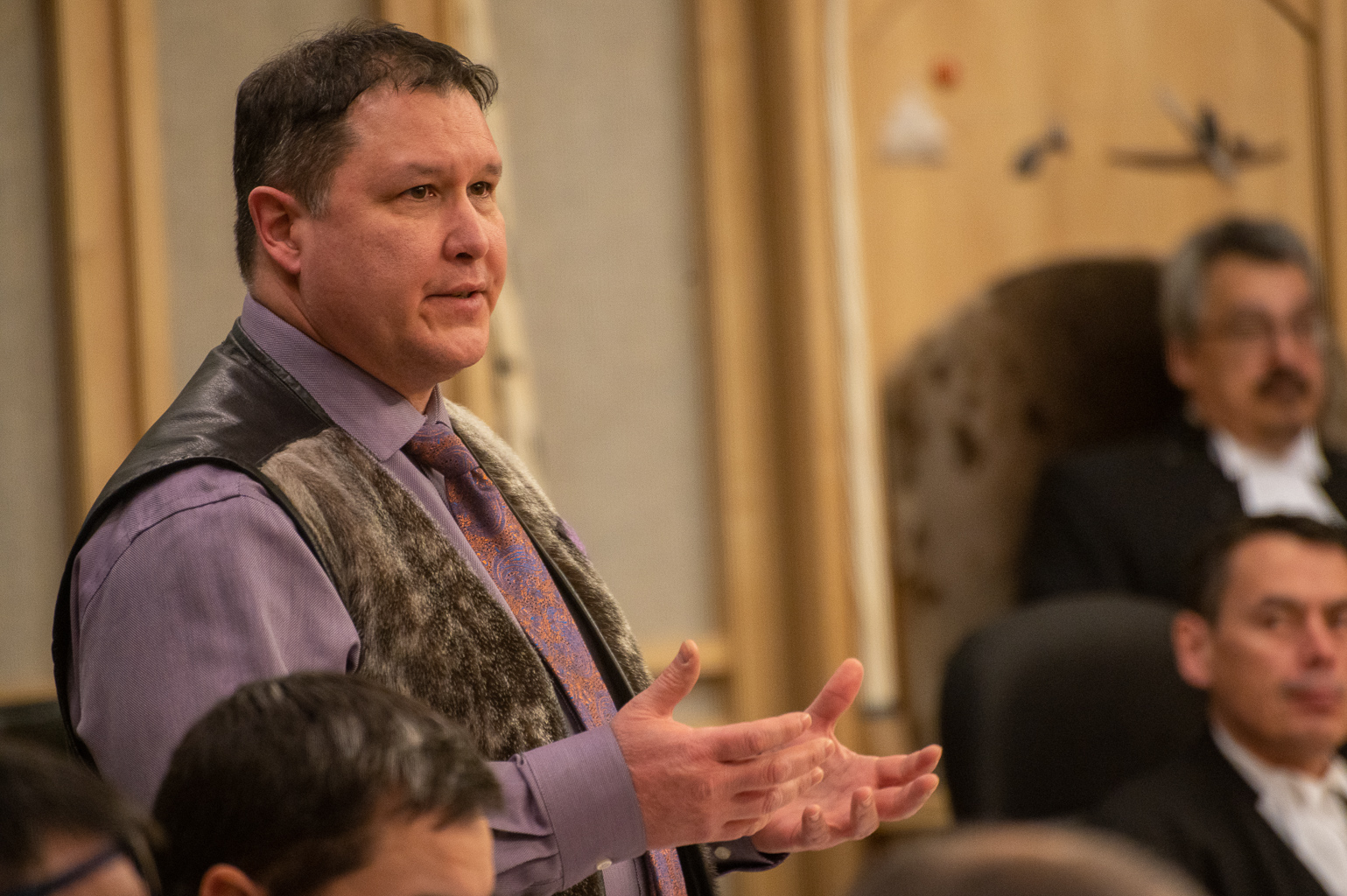Nunavut’s efforts to eliminate tuberculosis have been hampered by COVID-19
The pandemic has had a “tremendous impact on our tuberculosis path forward,” says Nunavut's health minister.

The COVID-19 pandemic has put Nunavut’s efforts to eradicate tuberculosis on the backburner.
Nunavut’s health minister, George Hickes, said on Tuesday, Oct. 27, in the legislative assembly that the pandemic has had “a tremendous impact on our tuberculosis path forward.”
In 2018, the federal government committed $27.5 million over five years to eliminating the disease in Inuit Nunangat by 2030.
The most recent data the Government of Nunavut will provide on TB cases in Nunavut is from 2018, when the territory saw 57 infections. There were 101 infections in 2017 and 53 in 2016.
TB occurs at a rate roughly 50 times higher in Nunavut than in the rest of Canada.
Hickes said that meetings and training opportunities for staff have been delayed since March, and the territorial TB committee hasn’t met face-to-face since last January.
“They do have monthly meetings, but it is challenging to coordinate a fulsome response to tuberculosis across the territory when all our stakeholders aren’t able to meet face-to-face on a regular basis,” Hickes said.
The plan to eliminate TB includes more prevention, screening, diagnosis and treatment. Screening has taken place in three communities: Whale Cove, Qikiqtarjuaq and Kinngait.
“Discussions are on hold for any community-wide screenings right now,” Hickes said. “It would be ill-advised under the current COVID-19 restrictions.”
Hickes said in an interview on Oct. 28 that community-wide screening isn’t necessary right now, anyway. “We’re still analyzing the results and the benefits and the impact that [the screenings] have had,” he said.
The issue was raised by John Main, the MLA representing Arviat North–Whale Cove. At the end of July the Nunavut government advised that there might be cases of TB at an Arviat daycare.
“After the notification happened, what has the Department of Health done in Arviat to investigate and fix this?” Main asked.
The source of the latent TB still hasn’t been identified, Hickes said. Latent means that a person is infected with the bacteria, but they don’t show symptoms. They’re still contagious, however.
Health officials are continuing to do contact tracing and testing in the community.
“It’s not the biggest surge we’ve ever seen, it’s not the smallest surge we’ve ever seen,” Hickes said.
Two or three TB nurses have been put in the community for the majority of the year, he said.
On Tuesday evening a regional communicable disease coordinator and experienced TB nurse flew from Iqaluit to Arviat to assist staff there, Hickes said.
They will help with contact tracing to build capacity in the community to address the surge.
Hickes said that although COVID-19 is hampering training and meeting in person, the clinical aspect to addressing TB on the ground is working as it did before the pandemic. There are TB nurses and coordinators in every community that help respond to outbreaks, he said.
“In a nutshell, I recognize the member has concerns that TB has fallen off the table, so to speak, due to COVID-19,” Hickes said to Main.
“But I can assure the member that, especially in Arviat, we have continued to work on contact tracing.”
Hickes also said that the Nunavut government is continuing to work with Health Canada and Nunavut Tunngavik Inc. to follow through on its plan to eliminate the disease.